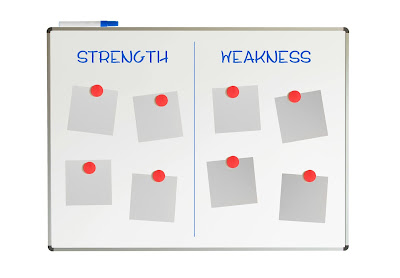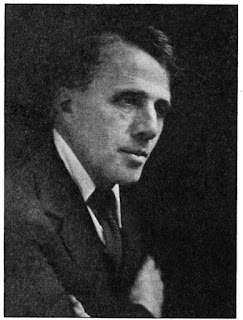 |
Daydreaming can be good or bad;
It all depends on its application. |
Our world is filled with men, women, and children who spend
too much time in VIRTUAL and other fantasy-lands and not enough time in the REAL world. Doing so can not only be artificial and superficial, but dangerous as well. To illustrate, consider the myriad of present-day horror stories surrounding the undisciplined use of the Internet and social media platforms.
It is a modern-day nightmare!
One does not need technological devices to daydream or fantasize. People throughout history have engaged these activities for both good and ill. Like so many other vehicles or "TOOLS," fantasy and daydreaming are not inherently good or bad. It all depends on how you utilize them. The purpose of today's article is to help self-action leaders avoid the negative consequences of undisciplined daydreaming while capitalizing on the positive fruit that can germinate from productive fantasy.
Og Mandino—that famous self-help guru of the 1970s—once wrote that:
"A burning desire to succeed is not enough [to win in real life]. ... There are two types of burning desire . . . and the one type is phony and hypocritical. This phony type of burning desire is found in the person who is constantly telling his [spouse], his boss, and (worst of all) himself, that he really wants to succeed. [She] reads all the self-help books published and [she] gets her "kicks" from reading about others succeeding just as there are individuals who get their "kicks" from reading pornographic books. Unfortunately for our friends who read either types of these books they never get into action. They live their lives vicariously through their imagined participation in the lives and activities of others. Tomorrow, to this type of dreamer, will be a great day. [The problem is that] tomorrow never comes."*
As he so often was, Og is right!
 |
Benjamin Franklin
1706-1790
Co-author and signer of the
Declaration of Independence |
Mandino's words remind me of a couple of quotes from Benjamin Franklin:
"Big talkers, little doers."
"None preaches better than the ant, and she says nothing."
— Benjamin Franklin
"Big talkers" and "little doers" are annoying, even anathema, to authentic self-action leaders.
For a self-ACTION leader, the essence of one's very existence involves conscious, focused, and proactive ACTION aimed at the continual betterment of oneself and others throughout the entirety of one's life and career journey.
Few things are more unattractive to self-action leaders than a day-dreamer or fantasizer who never bothers to do anything about one's hopes, dreams, and goals, or those who spend all their time creating and/or inhabiting inauthentic—or worse, divisive and dangerous—virtual worlds online and on social media platforms when they could be taking tangible action to make the REAL world a better place.
This does not mean, however, that all daydreaming and fantasy are bad. Quite to the contrary, if properly directed, utilized, and self-disciplined, a great many mental exercises—including fantasy and daydreaming—can not only be beneficial, but vital to the construction of positive and productive outcomes in any life or career arena.
 |
| Blueprint of building exterior |
Dr. Stephen R. Covey teaches that a
mental or
spiritual creation always precedes the
physical creation of anything.** Similarly, any serious construction project always begins with blueprints on paper.
I have discovered the truth of this mental, spiritual, or paper creation in my own life. I sometimes reflect back on the early 2000s when I was working on my first book: I Am Sovereign: The Power of Personal Leadership. Throughout the process of creating that book, I would often lie awake in bed at night—or sit awake at my desk during the day—imagining in great detail what that book would look and feel like. Later, in the spring of 2006, I enjoyed the satisfaction of seeing and holding the first REAL copy of the book I had spent so much time imagining in my mind.
 |
Our Engagement Photo (2008)
A TON of mental and physical
exertion went into wooing my wife. |
Consider another example involving a romantic relationship...
Prior to meeting, dating, and marrying my wonderful wife, Lina, I spent countless hours envisioning the kind of woman I wanted to someday marry. But I did not stop there. I also wrote dozens of love letters to my "Future wife" and created a scrapbook with images and words that painted a mental image of what I someday desired in a best friend, intimate confidant, and romantic spouse. In addition to these mental exercises, I also went out on a lot of REAL dates with different women—100 to be exact. Lina was the magic number #101.
Click HERE to read about Dr. JJ's Rocky Road of Romance.
All these actions served as important steps along Rascal Flatts' proverbial "broken road that led me straight to [her]." And while Lina did not always match perfectly every one of my mental creations, she is, in so many ways, even better! That's why I often refer to her as "better than the woman of my dreams."
Click HERE to read a Special Tribute to my wife, Lina.
Athletics is another arena where positive and vivid mental imagery, working in concert with positive affirmations, helped me to accomplish significant goals in my life. As a junior in high school, I won an individual and team State Championship title by coupling focused mental strategies with disciplined and vigorous physical workouts.
 |
| Newspaper article reporting my State title victory in 1996. |
My talents and skills as a writer, speaker, and communicator have additionally been aided by a great deal of mental work accompanied by tens of thousands of hours of practice.
For example, over-and-over-and-over again in a thousand different ways, I have pictured myself for many years as the "William Shakespeare of English prose"—and a decent poet to boot!
Click HERE to buy Dr. JJ's personal anthology of Poetry.
To some, such an audacious internal supposition may come across as arrogant—and if employed out-loud in careless or undisciplined ways that tear others down, it would be arrogant. But I can both honestly and humbly say that mental exercises such as these have unquestionably aided my growth and progress as an author.
If it works and blesses my life and the lives of others, why not employ such a tactic? After all, should we not all strive to be the very best we can possibly be in every area of our lives? For self-action leaders, the answer to this question is an unyielding and never-ending "YES!"
 |
The Immortal Bard
1566-1616
With crystalline vividness and audacious clarity
and precision, self-action leaders enthusiastically
envision exactly what they eventually want to become. |
Don't get me wrong. I'm not saying I
am the William Shakespeare of English prose. Other people can decide for themselves the quality (or lack thereof) of my pennings, be they prosaic or prosodic. I'm merely saying that continually picturing myself as a writer with elite natural talent and hard-won, consciously-developed skill has been a key ingredient in my long-term progress in the art and science of written composition. And diligently picturing YOURSELF
where you most want to be and
what you most want to accomplish will similarly aid your personal and professional initiatives, whatever they might be.
Thus it is that day-dreaming and fantasizing is not
in-and-of itself bad. After all, do not all great oak trees (meaningful accomplishments) begin as tiny acorns (ideas, hopes, daydreams, or fantasies)?
The answer to this question is self-evident and therefore rhetorical. A place does and should exist for the mental component of tangible actions and palpable achievements, for that is where all productive accomplishments have their genesis. Again in the words of Dr. Covey, a mental or spiritual creation always precedes the physical creation of anything.
As long as it is balanced with appropriate and continual ACTION, daydreaming, fantasy, and all sorts of other mental activities serve as vital components of learning and growth processes. This is why pilot trainees spend significant amounts of time in flight simulators. It is why EMT's-in-training practice CPR on dummies in preparation to save real lives. It is also why professional, corporate, and educational athletes employ various exercises in mental imagery to continually improve and hone their performances in arenas of practice and competition.
 |
We always see ourselves accomplishing
something before we actually achieve it. |
As described above, I personally utilize positive mental imagery
all the time in an on-going effort to become the best writer, speaker, teacher, leader, coach, husband, father, friend, et cetera that I can possibly be. I also spend time in specific activities and endeavors aimed at preparing me for the real stage of leadership and life. One of the most salient and prominent examples of such an exercise is my intentional and enthusiastic participation as a FANTASY baseball manager.
For those unfamiliar with fantasy sports, it is a game played online with friends, colleagues, or competitors and allows one to manage a "Fantasy" team in an array of different sports. The purpose of the game is to simulate being a REAL manager of a professional athletic team.
Fantasy leagues begin on a pre-determined "Draft Day" whereby you and your fellow competitors draft a team of 26 professional baseball players to play on your fantasy team prior to the start of the season. Then, once the REAL baseball season begins, real stats accrued by real players score points for those drafted (or traded) onto your fantasy roster.
Baseball is a WONDERFUL sport. As a friend of mine once noted, baseball is boring to the uninitiated. But for those who understand the game, baseball is fascinating, multi-layered, and richly complex; in short, it is a marvelous game with endless connections to real life.
This is part of the reason I prefer fantasy baseball to other fantasy sports. I further love it because it has by far the longest season (162 games from the first of April to the beginning of October) of any other sport. Consequently, it allows me to make decisions on a daily basis throughout the entire season, as opposed to every second, third, fourth, or seventh day as would be the case with others sports such as basketball, hockey, or football. The regularity of fantasy baseball's unrelenting schedule helps keep me interested in and focused on leading my team to championships.
I have played fantasy baseball for 11 years now as part of a league of ten managers called the Noodle Armed Knuckle Ballers. Along the way, my teams (Houston Heat and Florida Freedom) have won three (3) league championships and a number of records and other achievements.
 |
My most recent Fantasy Baseball Title.
My team is called Florida Freedom |
I do not play-for-pay. My friends and I just compete for fun. Yet along the way, I have discovered a cornucopia of positive real-life payments (benefits) from playing this game—and particularly as it relates to my lifelong desires to be an elite writer and influential leader. Consequently, the game serves a myriad of positive and productive purposes that extend well beyond the mere enjoyment of the game.
Consider the following life lessons gleaned from playing this unique game.
Fantasy Baseball has:
- Enabled me to develop quality friendships.
- Nurtured and deepened my desire for excellence and achievement.
- Honed my critical thinking skills as a manager and leader.
- Helped me to create my own luck through commitment, focus, and hard work.
- Enhanced my focus, discipline, and determination as a manager and leader.
- Provided valuable practice at managing my emotional and social responses to losing and winning.
Let's now take these five items one-at-a-time.
1. Enabled me to develop quality friendships.
Some of my best friends play with me on our league. In most cases, we did not end up in the same league because we were best friends, but rather we become friends because we have spent a lot of time communicating with and competing with each other in our league.
2. Nurtured and deepened my desire for excellence and achievement.
Excelling at any activity is usually FUN. When my efforts as a fantasy baseball manager bear fruit in the form of stellar stats, championship titles, and records set or broken, it motivates me to build upon my achievements to become even better in the future. Failure similarly motivates me, albeit for different emotional reasons (e.g. losing hurts). Even though my fantasy baseball team and league is something I do "just for fun," I still take pride in doing my best and rising as far and high as I can. Such desires, intentions, and goals inevitably spill-over into other, real-world endeavors.
3. Honed my critical thinking skills as a manager and leader.There is a lot of critical thinking involved in making decisions as a leader or manager. The same is true for a fantasy baseball manager. Success in fantasy baseball—or any other career or life undertaking—requires that I intake a lot of information and then effectively synthesize it with a host of different variables and potential variables at play. I must then analyze that synthesis in ways that empower me to make savvy decisions for both the short-term and the long-run. Fantasy baseball has provided me with an incredible opportunity to practice this input ~ synthesis ~ analysis ~ decision-making process. I can then apply the lessons I learn to REAL life situations and circumstances.
4. Helped me to create my own luck through commitment, focus, and hard work.
 |
With my good friend and fierce competitor,
Kent Pratt, and his beautiful family in Alberta (2019). |
While a certain degree of luck is involved in just about every game or undertaking in life, the reality is that successful leaders and people find a way to create their
own luck through focus, hard work, vision, discipline, commitment, and determination.
For example, the "luckiest" player in the history of our league is my good friend, Kent Pratt of Alberta, Canada. Kent has won FIVE (5) of the 11 championship titles to-date in our league—two (2) more than anybody else. I place the word "luckiest" in parentheses to emphasize a well-known fact about our league: Nobody (including me) invests more focus, hard work, vision, discipline, commitment, and determination in his team than Kent Pratt.
Is it any wonder then that he is also the "luckiest"?
There is an old saying: "The harder you work, the luckier you get." Truer words have rarely been spoken. While fantasy baseball teams undoubtedly face days, weeks, or even months of legitimate "good luck" or "bad luck," the reality is that managers who consistently make good decisions all season long are usually the managers who end up winning the most statistical categories and championships.
In a 162-game season, there is no such thing as 162 games of all "good luck" or all "bad luck." Everyone is going to get some of both, and the managers who make the wisest decisions most consistently will usually come out on top. And it is no secret that this same principle holds true for every other endeavor in life.
5. Enhanced my focus, discipline, and determination as a manager and leader.
I have learned a variety of different lessons as a fantasy baseball manager that translate directly to issues of focus, discipline, and determination as a manager, leader, and self-action leader in the REAL world.
Perhaps that most important of these lessons involves the value of
playing hard every single day. Managers who carefully analyze their rosters every game of a 162-game season are usually the managers who finish high-up in the standings at year's end. One-hundred and sixty-two (162) games is a lot of games! If you are not careful, it can be easy to forget to check on your roster once-in-a-while. Too-oft repeated, this negligence can turn into a bad habit that extends into several days, a week, or even a month, which can prove costly to your chances of finishing strong at the end of the season. While it is possible for even the most diligent managers to have an off-season, I know of no committed and consistent manager in our league who has ever fallen into the bottom-half of the league in overall performance as measured over multiple years. To illustrate this point, I once finished as low as 7th place out of 10 managers in a single season. Yet overall, I have more championship titles and all-time records than any other player except the mighty Kent Pratt.
By applying this same consistent, even daily effort, both Kent and I have enjoyed a lot of success, combining to win eight (8) out of the 11 league titles since we began playing in 2011. This year, I took first place and Kent took second place. And guess who had the most waiver-wire roster pickups and drops of all the managers in our league? You guessed it: Jordan and Kent. While number of roster pickups and drops does not always correspond to victory, it does shed some insight into the passion and consistency of a manager when one's waiver change-number is high.
 |
Learning to self-regulate and otherwise manage the emotions
surrounding both winning and losing is an essential
component of management, leadership, and SAL. |
6. Provided valuable practice at managing my emotional and social responses to losing and winning.Winning is FUN. It also brings a lot of relief after the pressure of a difficult project or lengthy season has concluded. On the other hand, losing sucks! However, losing is a part of sports, careers, and lives. As such, successful leaders, managers, and individual competitors must learn how to practice good sportsmanship (win or lose) and learn how to manage the emotional ups-and-downs of winning and losing.
I have been able to win quite a bit in my fantasy baseball league, and that has been very satisfying and fun. However, I have lost more often than I have won. Even Kent Pratt—our resident league legend (I personally refer to him as the "Nick Saban" of our league)—has lost more than he has won. Neither Kent nor I like to lose, because let's face it: losing sucks! But... it is part of the game of fantasy baseball—just like it is part of one's career and life. The better we are at gracefully handling both winning and losing, the more effective we become as managers in the future, and the more people will respect and like us.
You typically learn more when you lose than when you win. In the words of Anthony Robbins: "When you succeed, you tend to party; but when you fail, you tend to ponder."
"When you succeed, you tend to party; but when you fail, you tend to ponder."
— Anthony Robbins
To date, I have done a lot more pondering than partying in my life. Doing so has blessed my personal and professional pathways immeasurably. It has also led to increasing success in both life arenas
over time.
Successful managers never let a loss go to waste; they always learn from it and become more successful in the future as a result. On the other hand, winning can also be very motivating to future performances. As someone once said: "Nothing succeeds like success," and "the rich tend to get richer."
Win or lose in the present, future successes depend on
how you
choose to
respond to both winning and losing. Positive and productive responses to losing keep you from falling into depression over your losses and generate a host of positive and productive lessons you can apply to future competition. On the other hand, positive and productive responses to winning keep you from becoming arrogant and maintain (or even expand) your motivation to build upon present wins to construct follow-up successes in the future.
Suffice it to say, there are many lessons gleaned from my experiences playing Fantasy Baseball that can easily translate and be applied to any other career or life endeavor. For this reason—and because it is so much fun—I continue to play this wonderful game with my good friends and fierce competitors year-after-year-after-year. As a result, though another 162-game season has just ended, I can hardly wait for Draft Day to arrive next March!
What kinds of mental strategies or fantasy undertakings might you engage to help further educate and prepare you for maximum success as a self-action leader, manager, leader, friend, spouse, parent, et cetera? I invite you to ponder on this question and take advantage of appropriate opportunities as they arise in your life.
-Dr. JJ
October 6, 2021
Palm Beach Gardens, Florida, USA
Author's Note: This is the 233rd Blog Post Published by Freedom Focused LLC since November 2013.
Click HERE for a compete listing of the other 232 FF Blog Articles.
.........................
Tune in NEXT Wednesday for another article on a Self-Action Leadership related topic.
And if you liked this blog post, please share it with your family, friends, colleagues, and students—and encourage them to sign up to receive future articles for FREE every Wednesday.
To sign up, please email freedomfocused@gmail.com and say SUBSCRIBE, or just YES, and we will ensure you receive a link to each new blog article every Wednesday.
Notes:
* Mandino, O. (1972). The Greatest Secret in the World. New York, NY: Bantam Books. Pages 2-3
** Covey, S.R. (1989). The 7 Habits of Highly Effective People. New York, NY: Fireside. See pages 99-100, 129-131, 134, and 146-47.

















































